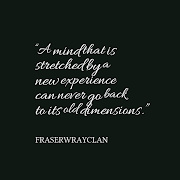"chairman of the board" of a multi-million dollar drug smuggling operation was handed a five-year sentence in a Seattle courtroom Friday morning.
"chairman of the board" of a multi-million dollar drug smuggling operation was handed a five-year sentence in a Seattle courtroom Friday morning.
Chief U.S. District Judge Robert Lasnik told Jody York the smuggling ring was "a major drug organization that had a terrible impact on lower British Columbia and this part of the U.S. . . . Your kids and other people's kids are the ones that suffer when a community is riddled with violence the way Vancouver, B.C. is."
However, he credited York, 36, for leaving the violent drug gang before others were arrested in 2008.
He noted that York would have been serving a much-higher sentence if he had not struck a plea bargain and surrendered himself to U.S. authorities.
York, who has been associated to both the Hells Angels and Independent Soldiers gangs, told Lasnik his criminal connections have been exaggerated by police and the media.
His "managing director" in the drug ring, Edward "Skeeter" Russell got handed a 4.5 years behind bars, three years of supervised release and a $10,000 fine.
Russell, who has both Canadian and American citizenship, told Lasnik he got roped in by the lure of money.
"It was a great feeling. They are great guys," he said of co-conspirators York and Rob Shannon.
"You just don't think of the hundreds of people you hurt along the way."
Prosecutors asserted the two men, allied with the Hells Angels, trafficked thousands of pounds of marijuana and cocaine across the U.S./Canada border.
The marijuana was moved south into the States in PVC pipes, hollowed-out logs, wood chips and hidden compartments in tractor-trailer rigs.
The leader of the conspiracy, Rob Shannon who operated a Fraser Valley trucking company with York, was sentenced to 20 years in prison in March 2009.
Shannon and Abbotsford car dealer Devron Quast were arrested in June 2008, following a three-year undercover investigation resulted in the seizure of more than 1,700 pounds of cocaine, 7,000 pounds of BC Bud and about $3.5 million.
Quast, who testified at Shannon's trial, was sentenced to more than six years in jail in July 2009.
York and Russell were taken into custody immediately after their sentencing.
"I did the hardest thing in the world yesterday - I had to say good-bye to my two kids," York said as his wife wept in the gallery.
Five other men associated with the drug ring were also sentenced Friday.
Andrew Hall, 33, and Darren Hotner, 42, both from Abbotsford were both handed $5,000 fines, 120 hours community service and two years probation.
Hall, who loaded up the clandestine compartments in trucks and campers with drugs, told the court York and Shannon were his friends and he provided them manual labour only.
Lasnik said he thought Hall was more deeply involved than he claimed, but was still willing to take a chance on him.
Hotner's Abbotsford farm was used as a site to load and hide the marijuana before it was transported.
Bryan Hanna, of Vancouver, was handed a yearlong sentence in jail, but was allowed to return to B.C.for a medical appointment related to some recent seizures.
He told Lasnik he got lured in by the money, a total of $50,000, while working as a car salesman.
The final Canadian, Frederick Davey, 63, was sentenced to one-year probation.







